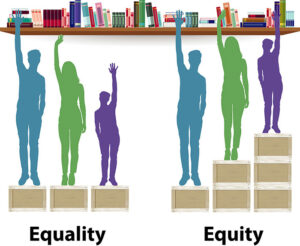Conflict resolution conversations play a pivotal role in enhancing communication and relationships, serving as a crucial bridge that connects differing perspectives. By engaging in these discussions, individuals not only address immediate issues but also cultivate an environment of trust and collaboration.
This exploration delves into the strategies and approaches necessary for effective conflict resolution, emphasizing the importance of active listening, cultural awareness, and innovative problem-solving. Whether in a corporate setting or during personal interactions, mastering these skills can lead to significant improvements in overall dynamics.
Importance of Conflict Resolution Conversations
Conflict resolution conversations are vital in professional settings as they help maintain a productive and harmonious work environment. When conflicts arise, addressing them promptly and effectively can prevent escalation, ensuring that relationships remain intact and that the team continues to function efficiently. Effective conflict resolution is characterized by several key elements, including open communication, empathy, and a focus on mutual understanding.
Active listening plays a crucial role in this process, as it allows individuals to fully comprehend the perspectives and feelings of others, fostering a more collaborative atmosphere for resolving disagreements.
Key Elements of Effective Conflict Resolution
To navigate conflicts successfully, certain elements must be present:
- Open Communication: Encouraging transparent dialogue helps clarify misunderstandings.
- Empathy: Understanding the emotions and viewpoints of others can lead to more amicable resolutions.
- Focus on Solutions: Shifting the conversation from blame to finding a resolution promotes collaboration.
Role of Active Listening
Active listening is a fundamental aspect of resolving conflicts. It involves fully engaging with the speaker, demonstrating understanding through verbal and non-verbal cues. By practicing active listening, individuals can ensure that all parties feel heard and valued, which is essential for effective conflict resolution.
Strategies for Effective Conflict Resolution
Implementing effective strategies for conflict resolution can significantly enhance collaboration within teams. Positive conflict management not only improves relationships but also leads to better outcomes.Establishing ground rules is crucial in conflict resolution discussions. Ground rules create a safe environment where all participants can express their thoughts without the fear of backlash.
Techniques for Positive Conflict Resolution
Here are several techniques that can help handle conflicts in a constructive manner:
- Stay Calm: Maintain composure to facilitate rational discussions.
- Avoid Personal Attacks: Focus on the issue, not the individuals involved.
- Seek Common Ground: Identify shared interests to foster collaboration.
- Be Solution-Oriented: Prioritize finding a resolution rather than dwelling on the problem.
Framework for Conflict Resolution Conversations
A structured framework can guide conflict resolution discussions. This framework typically includes:
- Identify the Conflict: Clearly define the issue at hand.
- Gather Perspectives: Allow all parties to share their viewpoints.
- Explore Solutions: Brainstorm possible resolutions together.
- Agree on Action Steps: Formalize the agreed actions to resolve the conflict.
Conflict Resolution in Business Innovation
Conflict resolution can be a powerful driver of innovation within businesses. When conflicts are managed effectively, they can lead to creative problem-solving and the generation of new ideas.
Fostering Innovation Through Conflict Resolution
For instance, teams that engage in constructive conflict often experience higher levels of creativity. When diverse perspectives are brought to the table, combined with effective resolution strategies, the result can be innovative solutions that benefit the organization.The relationship between conflict management and creative problem-solving is significant. Effective resolution strategies encourage open dialogue, allowing team members to express unconventional ideas without fear of criticism.
Encouraging Innovative Solutions
To promote innovative solutions during conflict discussions, consider the following methods:
- Encourage Out-of-the-Box Thinking: Create an environment where unconventional ideas are welcomed.
- Utilize Brainstorming Sessions: Host sessions specifically aimed at generating creative solutions during conflicts.
- Implement Collaborative Tools: Use tools that facilitate collective problem-solving, such as shared digital platforms.
International Business and Conflict Resolution
In the realm of international business, understanding cultural differences is crucial for effective conflict resolution. Each culture has its unique approaches to communication and conflict management.
Cultural Differences in Conflict Resolution
Cultural variations can significantly impact how conflicts are perceived and resolved. For example, some cultures may prioritize indirect communication, while others value straightforwardness. Recognizing these differences can enhance conflict resolution efforts.
Managing Conflicts in International Teams
When working within international teams, consider employing strategies such as:
- Foster Cultural Awareness: Encourage team members to learn about each other’s cultural backgrounds.
- Establish Clear Communication Channels: Ensure everyone has access to language support if needed.
- Promote Inclusivity: Create an environment where all voices are valued and heard.
Case Studies of Successful Conflict Resolution
Numerous global companies have successfully navigated conflicts by embracing cultural diversity. For instance, multinational corporations often thrive by leveraging the unique perspectives of their diverse teams, using conflict resolution as a means to enhance innovation and collaboration.
Conflict Resolution in Job Search Techniques
In the job search process, possessing conflict resolution skills can be a significant advantage. Employers often look for candidates who can navigate difficult situations effectively.
Importance of Conflict Resolution Skills in Interviews
Showcasing conflict resolution abilities during interviews can demonstrate a candidate’s problem-solving capabilities. For instance, narrating experiences where conflicts were resolved can highlight a candidate’s interpersonal skills.
Scenarios to Showcase Conflict Resolution Skills
Candidates can prepare for potential scenarios such as:
- Handling Disagreements with a Colleague: Describe a time when differing opinions were navigated successfully.
- Resolving Client Issues: Provide examples of how past conflicts with clients were managed to mutual satisfaction.
- Addressing Team Conflicts: Share experiences of mediating conflicts within teams to achieve positive outcomes.
Conflict Resolution in Business Management
Managers play a pivotal role in facilitating conflict resolution within their teams. Their approach can significantly influence team dynamics and overall productivity.
Role of Managers in Conflict Resolution
Managers are responsible for creating an environment conducive to open communication and conflict resolution. They must be approachable and equipped with the necessary skills to mediate disputes effectively.
Procedures for Addressing Conflicts
Effective procedures for conflict resolution can streamline the process. This may include:
- Establishing Clear Policies: Create guidelines for conflict resolution within the organization.
- Encouraging Open Dialogue: Foster a culture where team members feel safe discussing conflicts with management.
- Implementing Regular Check-Ins: Schedule one-on-one meetings to discuss any emerging issues proactively.
Successful Conflict Resolution Management Practices
Companies that have adopted proactive conflict management practices report higher employee satisfaction and lower turnover rates. For example, organizations that prioritize conflict resolution training see improved collaboration and morale among teams.
Marketing Direct and Conflict Management
Conflict resolution is crucial in maintaining positive customer relations in marketing. How conflicts are managed can significantly affect customer satisfaction and loyalty.
Impact of Conflict Resolution on Customer Relations
When conflicts arise with clients, addressing them swiftly and effectively can turn potentially negative experiences into opportunities for enhancing customer loyalty.
Strategies for Resolving Conflicts with Clients
To manage client conflicts effectively, consider implementing the following strategies:
- Listen Actively: Validate the client’s concerns and demonstrate understanding.
- Provide Timely Responses: Promptness in addressing issues can prevent escalation.
- Offer Solutions: Propose actionable solutions that address the client’s needs directly.
Role of Feedback in Marketing Practices
Feedback loops are essential for continually improving marketing strategies through conflict resolution. Encouraging clients to provide feedback allows businesses to refine their approaches and address issues proactively.
Business Networking and Conflict Conversations
In networking scenarios, conflict resolution skills are invaluable. Navigating disagreements effectively can enhance professional relationships and foster collaboration.
Dealing with Disagreements in Networking Events
Utilizing conflict resolution techniques in networking can create a more positive atmosphere. Techniques such as active listening and empathy can significantly improve interactions.
Impact of Conflict Resolution on Business Relationships
Resolving conflicts in networking situations can lead to stronger, more resilient business relationships. Professionals who handle disagreements well are often perceived more favorably, enhancing their networking potential.
Outsourcing and Conflict Resolution
Outsourcing relationships can often lead to conflicts that require careful management. Identifying common issues and addressing them effectively is key to maintaining healthy partnerships.
Common Conflicts in Outsourcing Relationships
Conflicts in outsourcing can arise from miscommunication, differing expectations, or cultural differences. Recognizing these challenges early can help in crafting effective resolutions.
Approaches to Resolving Conflicts with Outsourced Partners
To navigate conflicts with outsourced partners, consider the following approaches:
- Establish Clear Expectations: Document and communicate expectations clearly at the outset.
- Encourage Open Communication: Create channels for ongoing dialogue to address issues as they arise.
- Regular Performance Reviews: Schedule evaluations to ensure alignment and satisfaction on both ends.
Guidelines for Healthy Communication
Maintaining healthy communication with outsourcing teams is crucial. Guidelines should emphasize respect, clarity, and mutual understanding to foster collaboration.
Workplace Communication and Conflict Resolution
Effective communication is closely linked to successful conflict resolution. Improving communication skills can significantly reduce the likelihood of conflicts arising in the workplace.
Connection Between Communication and Conflict Resolution
Miscommunication is often at the heart of conflicts. By fostering an environment of clear and open communication, organizations can minimize misunderstandings and address issues proactively.
Strategies for Improving Communication
To enhance workplace communication and prevent conflicts, consider these strategies:
- Implement Regular Team Meetings: Establish routine check-ins to discuss ongoing projects and concerns.
- Encourage Open Feedback: Create a culture where team members feel safe to express their thoughts and opinions.
- Provide Communication Training: Offer training sessions focused on effective communication techniques.
Role of Feedback Loops in Resolving Conflicts
Feedback loops are critical in addressing workplace conflicts. Regular feedback allows for the identification of issues before they escalate, promoting a more harmonious work environment.
Team Building Through Conflict Resolution
Resolving conflicts can significantly enhance team cohesion. Teams that work through their differences often develop stronger bonds and improved collaboration.
Benefits of Conflict Resolution for Team Cohesion
When conflicts are resolved effectively, teams can experience increased trust, improved communication, and a greater sense of unity.
Exercises to Promote Conflict Resolution Skills
Engaging in team-building exercises can enhance conflict resolution skills. Consider implementing activities such as:
- Role-Playing Scenarios: Practice conflict resolution through role-playing exercises.
- Group Problem-Solving Challenges: Foster collaboration by tackling challenges as a team.
- Open Forums: Host discussions where team members can voice concerns and collaborate on solutions.
Success Stories of Improved Teams
Numerous teams have reported enhanced performance and morale after successfully resolving conflicts. These success stories often illustrate the benefits of fostering a culture of open communication and conflict resolution.
Conflict Resolution in Sales Management
In sales management, effective conflict resolution can directly impact sales performance. Addressing conflicts between sales teams and clients can lead to improved relationships and better results.
Effect of Conflict Resolution on Sales Performance
Sales teams that are adept at resolving conflicts tend to perform better, as they build stronger relationships with clients and enhance team dynamics.
Techniques for Resolving Conflicts Between Sales Teams and Clients
To manage conflicts effectively, sales managers can employ techniques such as:
- Active Listening: Truly understand client concerns to tailor solutions effectively.
- Regular Communication: Maintain open lines of communication with clients to address issues promptly.
- Collaborative Problem-Solving: Work with clients to find mutually beneficial solutions.
Examples of Internal Sales Team Conflict Resolution
Internally, sales teams often face conflicts that can hinder performance. Managers who implement conflict resolution strategies can transform these situations into opportunities for growth, ultimately leading to better results.
Risk Management and Conflict Resolution
Unresolved conflicts pose significant risks for businesses, potentially leading to decreased morale, productivity loss, and high turnover rates. Understanding this, organizations can better integrate conflict resolution into their risk management practices.
Identifying Risks Associated with Unresolved Conflicts
Risks linked to unresolved conflicts include:
- Decreased Productivity: Distractions from unresolved issues can hinder focus and performance.
- Increased Employee Turnover: High levels of unresolved conflict can lead to unhappy employees leaving the organization.
- Damage to Reputation: Poor conflict management can negatively affect the organization’s public image.
Mitigating Risks with Conflict Resolution Strategies
Implementing effective conflict resolution strategies can significantly reduce these risks. Organizations that prioritize conflict resolution are often more resilient and adaptable.
Framework for Integrating Conflict Resolution into Risk Management
A robust framework for integrating conflict resolution into risk management may include:
- Regular Training: Provide training for employees on conflict resolution techniques.
- Establish Clear Protocols: Create documented protocols for addressing conflicts as they arise.
- Encourage a Culture of Open Dialogue: Foster an environment where employees feel comfortable discussing conflicts.
Conflict Resolution in the Restaurant Industry

The restaurant industry presents unique challenges that can lead to conflicts among staff and with customers. Effective conflict resolution strategies are essential for maintaining a harmonious work environment.
Unique Conflicts in Restaurant Settings
Conflicts in restaurants often arise from high-pressure environments, misunderstandings, or differing personalities. Addressing these conflicts promptly is crucial for smooth operations.
Strategies for Management to Resolve Conflicts
Restaurant managers can employ strategies such as:
- Establish Clear Communication: Ensure staff understands expectations and responsibilities.
- Promote Team-Building Activities: Foster camaraderie among staff to reduce friction.
- Provide Conflict Resolution Training: Equip staff with the skills to handle conflicts effectively.
Success Stories of Effective Conflict Resolution
Many successful restaurants have benefited from implementing strong conflict resolution strategies, resulting in better staff morale and improved customer service.
Solo Professionals and Conflict Resolution
For solo entrepreneurs and freelancers, conflict resolution skills are essential for managing client relationships effectively. Knowing how to handle disputes can lead to long-term success.
Importance of Conflict Resolution for Solo Entrepreneurs

Solo professionals often face conflicts without the support of a larger team. Effective conflict resolution skills can help them maintain positive relationships with clients and partners.
Methods for Handling Client Disputes
To manage client disputes effectively, solo professionals can:
- Set Clear Expectations: Clearly Artikel project scopes and deliverables from the outset.
- Communicate Proactively: Address concerns before they escalate into conflicts.
- Seek Win-Win Solutions: Aim for resolutions that satisfy both parties.
Strategic Planning and Conflict Resolution
Integrating conflict resolution into strategic planning processes can enhance decision-making and collaboration. Navigating disagreements during planning can lead to more innovative outcomes.
Integrating Conflict Resolution into Strategic Planning
During strategic discussions, conflicts may arise. Utilizing conflict resolution techniques can ensure that all voices are heard and considered.
Examples of Conflicts in Strategic Discussions
Common conflicts may include disagreements over resource allocation or differing visions for the company’s future. Addressing these conflicts constructively is crucial for effective strategic planning.
Strategies for Facilitating Constructive Conflict
To facilitate constructive conflict during planning, consider:
- Encouraging Diverse Perspectives: Value input from all team members, especially those with different viewpoints.
- Creating a Safe Environment: Ensure that team members feel comfortable expressing dissenting opinions.
- Utilizing Ground Rules: Establish guidelines for discussions that promote respect and constructive dialogue.
Final Wrap-Up
In summary, engaging in conflict resolution conversations is essential for fostering healthy relationships and driving innovation across various sectors. By embracing the techniques discussed, individuals and organizations can navigate conflicts more effectively, transforming challenges into opportunities for growth and collaboration.
FAQ Summary
What is the first step in conflict resolution?
The first step is to identify the issue clearly and ensure all parties understand it fully.
How can I improve my active listening skills?
Practice techniques such as summarizing what others say and asking clarifying questions to show engagement.
What role does feedback play in conflict resolution?
Feedback helps clarify misunderstandings and promotes open communication, which is vital for resolving conflicts.
How do cultural differences affect conflict resolution?
Cultural differences can influence communication styles and conflict perceptions, necessitating sensitivity and adaptability.
Can conflict resolution improve team performance?
Yes, effectively resolving conflicts can enhance team cohesion, trust, and overall performance.




